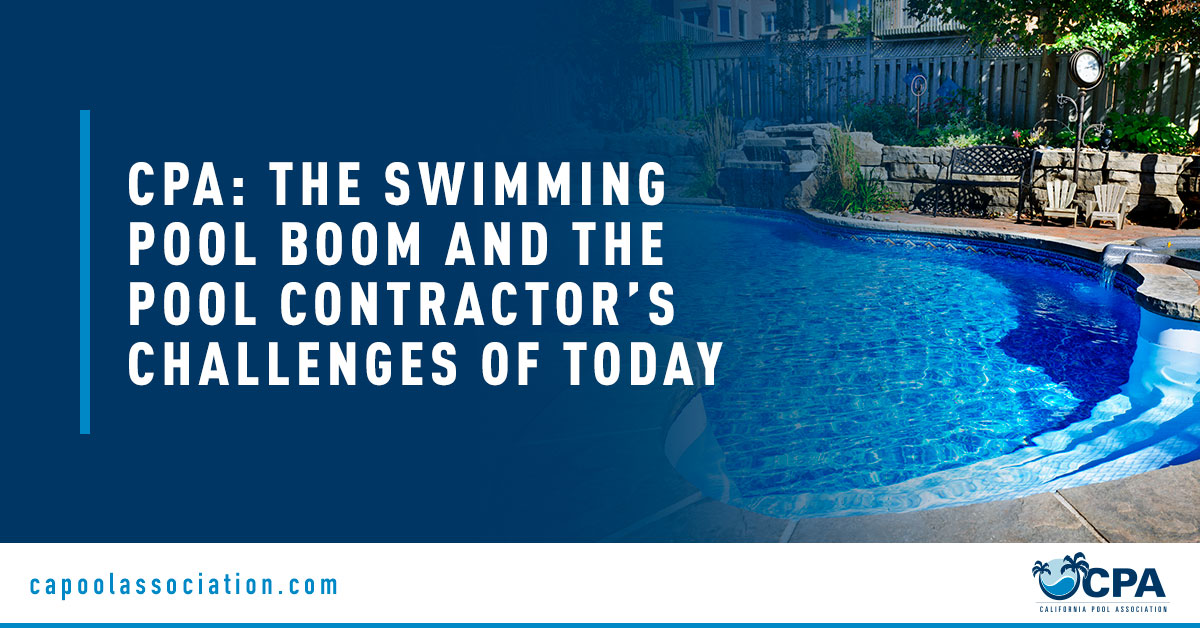
In 2019, depending on where you lived, you could find your local pools open until winter. When winter arrived, a sign was erected that read: Pool Closed for Winter. Then when spring arrived, and winter’s snow melted, another sign would be erected that read: Pool Open.
Then March of 2020 came and there was no “Pool Open” sign, but a sign that read: Pool Closed for Pandemic.
Within a moment the world had changed and each of us had to find our “new normal”. We had to figure out how to create our own world within the world we were living in and for more than 94,000 people, the swimming pool became their choice where they could combine a safe environment for their family and normalcy for what was going on around them.
The swimming pool boom helps to illustrate how the health crisis has altered consumer habits in favor of stay-at-home activities as the world struggles to contain the ongoing COVID-19 pandemic.
Refinancing has been all the rage in the past few months. With mortgage rates expected to rise this year, home equity loans have become a go-to option for homeowners to make use of their home equity. Money from home equity can be used for anything, such as home renovations, emergencies, and building a backyard pool!
Making the decision of getting a pool is easy enough, however, having it installed during these times is the challenge.
1. Increased Demand
Living through 2020 -2021, we all understand that we’ve had to follow social distancing protocols, but also homeowners have “refocused themselves on creating a vacation spot in their backyard,” said Kelly McKelvey, a spokeswoman at Northeast Spa & Pool Association (source: Florida Realtors).
A report from The Escape Home says that construction for new in-ground residential pools jumped by 21% in 2019 compared to the year before and states such as Arizona, Florida and Texas saw permits rise by 30%, according to Janay Rickwalder, a spokesperson for the industry research group Pool & Hot Tub Alliance.
2. Chlorine Shortage
“Pool chlorine is not easy to get, and there’s a chlorine shortage nationally that we’re all going to have to deal with,” John Swygert, CEO of Ollie’s Bargain Outlet Holdings, told investors on a conference call. (USA Today).
The chlorine shortage is widespread and is said to likely worsen. A major contributing factor to this is because of a massive fire at a Louisiana chemical plant that produces most of the nation’s chlorine tablets. Combined with the boom in pool construction, chlorine supplies continue to dwindle further and is becoming more expensive; “According to financial services company IHS Markit, chlorine prices are expected to spike 70% this summer, compared with last year. However, in some parts of the country, the price of chlorine tablets has already doubled over the past year.” (CNBC)
3. Shortage of Skilled Labor
In general, the US construction industry has struggled due to various reasons:
A proposed long-term solution to this deepening concern is training. Ed Brady, president and CEO of the Home Builders Institute, a non-profit training program associated with the NAHB, said “When you say 300,000 available jobs, they’re not all skilled labor—but many of them are,”.
“For 20 years, we haven’t trained and spent money on educating, and at the same time a lot of the industry is retiring. So the skills gap is going to get worse before it gets better.” He also added, “It takes funding, it takes legislative support, it takes community support,” (Bloomberg).
In knowing that our world has forever changed it’s important to remember that challenges in the pool industry will continue to impact any pool contractors’ project risk assessment and corporate liability. As pandemic induced shutdowns, supply chain issues and shortage of labor affects bonded projects, it does not mean that the deadlines or deliverables applicable to certain aspects of the project have stopped running. Deadlines and other periods will continue to run as well as limitations, mechanic’s lien rights and bond claims will also run. And it’s critical for a pool contractor to determine and preserve applicable deadlines for notice of claims, lien rights, requests for equitable adjustments and insurance claims.
It’s also important to remember that special attention is required in keeping track of costs and impacts in a clear and definable way so that any claims, notices, and requests are supported by sufficient evidence. A claim can be deemed invalid if it’s not supported or proven with sufficient evidence and documentation.
In the case that a pool project is shutdown, pool contractors must make the effort in determining the applicable contract requirements for protecting the site, materials, work completed and equipment. It is better to protect now, than pay later for damages incurred, spoliation or even theft.
No matter the reason for the pool season, California Pool Association is here to help mitigate these risks, help you with risk assessment and finding the optimal insurance coverage to cover you and your business. Give us a call today.